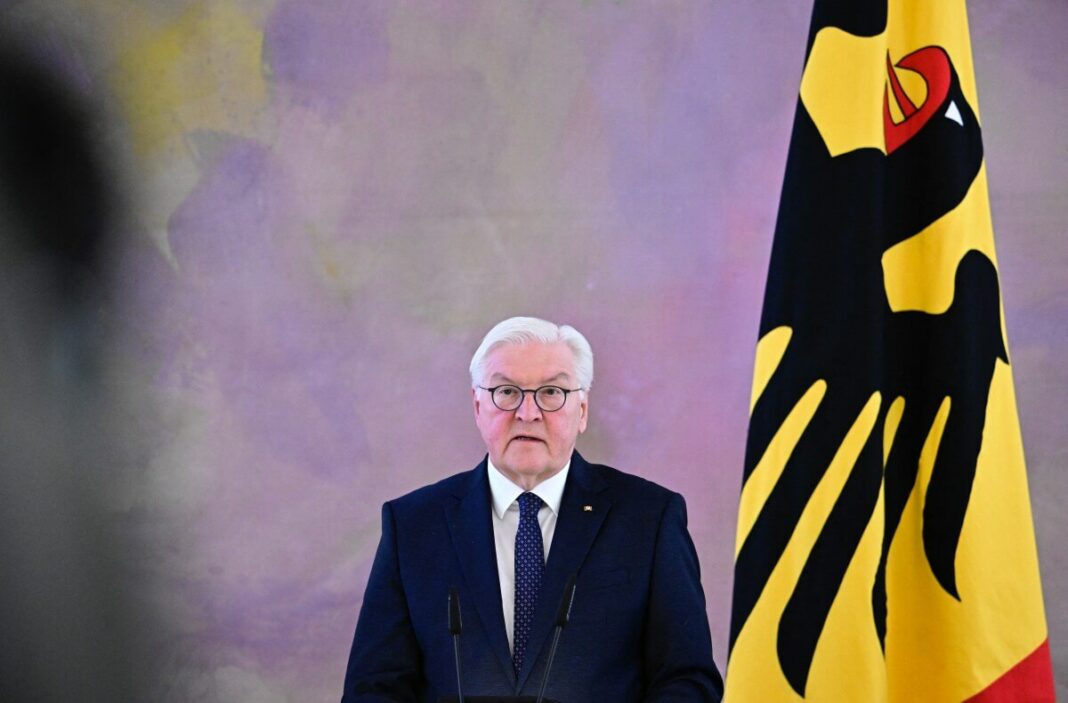German President Frank-Walter Steinmeier will pay a visit to Turkey in late April, his first since his election as president in 2017, Deutsche Welle Turkish edition reported.
Steinmeier, whose position is mostly symbolic, was first elected president in March 2017 and then again in February 2022. His time in office will end in 2027. His visit will also be the first official visit by a German president to Turkey in 10 years. Despite previous invitations from President Recep Tayyip Erdoğan to visit Turkey, Steinmeier until now has opted to wait.
According to Yaşar Aydın from the Centre for Applied Turkey Studies (CATS) at the Berlin-based German Institute for International and Security Affairs (SWP), problems in bilateral relations between Turkey and Germany are one of the reasons that led to a delay in Steinmeier’s visit to the country.
German-Turkish relations were strained following a failed coup in Turkey in 2016 due to politically motivated trials. German-Turkish journalist Deniz Yücel from the German Die Welt newspaper was kept in pretrial detention from 2017 to 2018 over his reporting on the attempted coup and the repression that followed.
Yücel’s case plunged relations between Ankara and Berlin to new lows, coming along with the detention of other journalists and activists.
Aydın told DW that increasing authoritarianism in Turkey with the country’s switch to a presidential system of governance that granted Erdoğan vast powers also caused Steinmeier to adopt a “wait and see” attitude about developments in Turkey.
Aydın said Erdoğan’s winning yet another term as president in the general election in May and strengthening his position went against Berlin’s expectations.
“Erdoğan will be in power for four more years. German-Turkish relations are not as good as they could be, and there is no improvement in the updating of the customs union or visa-free travel [to Europe for Turks]. But the relations are also not experiencing crises and tensions as in the past,” Aydın said.
The EU-Turkey customs union came into force in 1995, and Turkey obtained EU candidate status in 1999. In December 2004 the European Council decided that Turkey qualified for EU accession, making it possible to open negotiations to this end. In 2008 the Council of the EU adopted a revised accession partnership with Turkey. EU-Turkey relations have suffered due to a deterioration of democratic principles, human rights and the rule of law in Turkey in the wake of a failed coup in July 2016.
The European Commission recommended in December 2016 the launching of talks with Turkey on updating the customs union, but the union has not been modernized nor has it been suspended, either, over the years due to Turkey’s failure to address the EU’s concerns on a variety of issues.
Steinmeier, who served as German foreign minister between 2005-2009 and 2013-2017 from the Social Democratic Party (SPD), paid many visits to Turkey as foreign minister.
Erdoğan met with Steinmeier and German Chancellor Olaf Scholz in November during his first visit to Berlin since 2020.
His visit came at a time of controversy over his remarks accusing Israel of committing “genocide” and “war crimes” in the Palestinian enclave of Gaza and his characterization of the militant group Hamas as “liberators” fighting for their land.
Erdoğan’s stance has sparked questions in Germany about the wisdom of hosting the Turkish leader at a time when the German government is one of the strongest supporters of Israel, with the opposition conservatives and even the liberal Free Democratic Party (FDP), a member of Scholz’s coalition, urging Scholz to scrap the invitation.
But the center-left-led government said it was all the more important to keep talking in the toughest of times.
Ties between the two countries have always been uneasy, with Berlin casting a wary eye on Erdoğan’s clampdown on domestic dissent while recognizing that getting regional power Turkey on board was necessary for tackling thorny issues.
From mediating to get grain shipments out of Ukraine amid Russia’s war to negotiating a key deal on alleviating the 2015-2016 migrant influx in Europe, Turkey, as a NATO ally, has proven to be a crucial player.
Germany is also home to the largest Turkish diaspora, with a majority of Turkish nationals in the country supporting Erdoğan, including former German international footballer Mesut Özil.
But Erdoğan’s strident criticism of Israel sets him awkwardly against Germany, which has made the existence of Israel unconditional given its role in the Holocaust.


